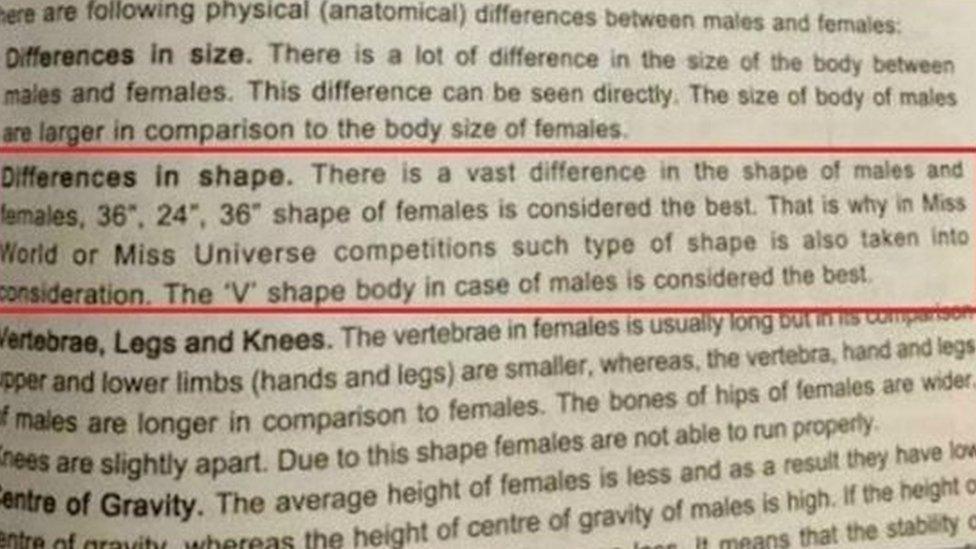India investigates 'sexist' textbook describing body shape
- Published

This image was being widely circulated on social media, leading to the publisher withdrawing the text
The Indian minister in charge of education has ordered an investigation into a textbook that described the "best" female figure as 36"-24"-36".
Prakash Javadekar told reporters he strongly condemned the "sexist" book and had asked for "appropriate action".
Snapshots of the offending text were widely circulated on social media.
The book, printed by a private publisher, was taught in some schools which follow India's Central Board of Secondary Education (CBSE) syllabus.
In addition to listing the ideal body proportions of a woman, the book went on to say that "the bones of hips of females are wider and their knees are slightly apart. Due to this shape, females are not able to run properly".
CBSE officials say they are unable to monitor privately published textbooks.
The board recommends only textbooks published by India's National Council of Educational Research and Training (NCERT) and said it was up to schools to exercise caution when choosing privately published textbooks to teach.
Textbook says 'ugliness' causes dowry
Five bizarre 'lessons' in Indian textbooks
Mr Javadekar said that schools had been asked to stop teaching the book with immediate effect. The Delhi-based publisher also said in a statement that it had "stopped the printing, selling and distribution of the revised book with immediate effect".
Controversies over Indian textbooks are not uncommon.
In February an animal rights row had erupted over a textbook which told children how to suffocate kittens.
A book in the western state of Gujarat made headlines in 2014 for claiming that Japan had dropped nuclear bombs on the US during the Second World War.
A row erupted in Maharashtra state over a textbook that said "ugly" and "handicapped" brides had led to a rise in dowries being claimed by groom's family.
Carnivores have also been a target for bile.
In 2012, a national text for 11-year-old students was discovered that said people who ate meat, "easily cheat, tell lies, forget promises, are dishonest and tell bad words, steal, fight and turn to violence and commit sex crimes".